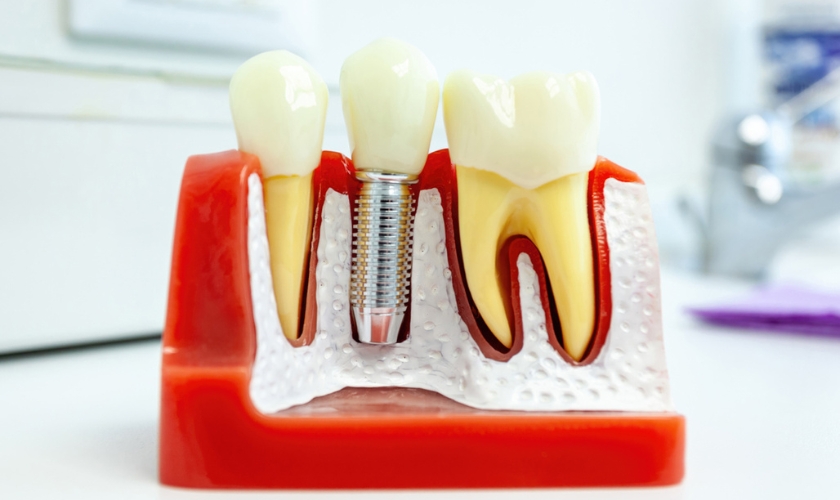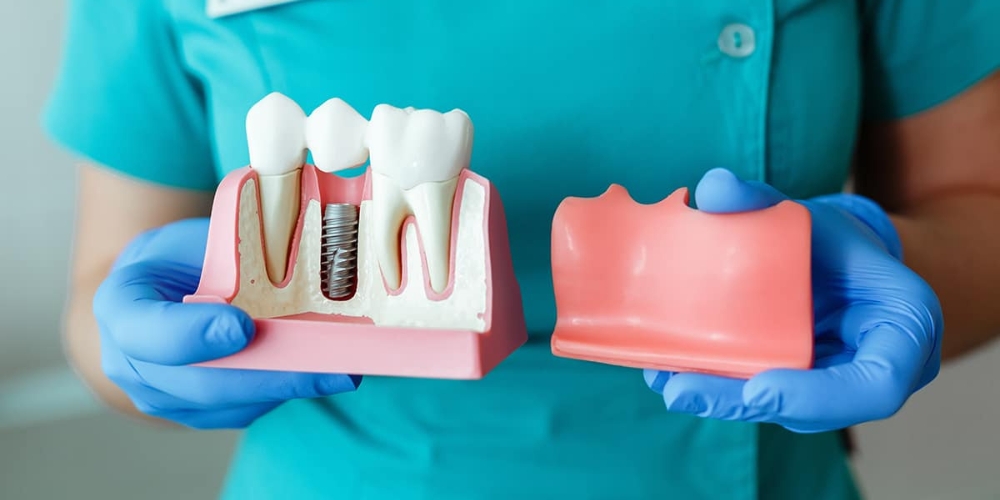
Dental implant surgery is a significant step to restoration of your smile, but how do you ensure you’re going to recover easily and be pain-free? The surgery is more than a good result; part of what you get depends on the healing process. Painful healing is inevitable, but it can be managed.
This blog will provide you with valuable tips and info to lessen pain, manage discomfort, and speed up the dental implant recovery.
Understanding the Dental Implant Recovery Process
Your body will need to heal and acclimate during and after dental implant surgery. The first few days after surgery may involve bruising, swelling, and minor discomfort, all of which are normal parts of the recovery process.
Most patients will be a little sore after getting dental implants in Rifle in the treated area for a few days. However, with medication, this will be manageable. Swelling will reduce within a couple of weeks, and your dental implants will begin to integrate with the bone by osseointegration. Full dental implant recovery takes a few months, but taking care of yourself early on can enable you to recover.
Ways to Minimize Discomfort After Your Procedure
Minimizing discomfort during dental implant recovery is essential to a hassle-free recovery. One of the best ways to minimize swelling and pain is by applying cold compresses to the treated area. A cold pack wrapped in a cloth should be applied for 15-20 minutes at a time to minimize swelling.
Over-the-counter painkillers, such as ibuprofen, can also be utilized to reduce discomfort and swelling. Additionally, keeping your head above the heart level can acutely reduce swelling. Avoid physical activity and give plenty of rest, especially during the first few days after surgery.
Foods to Avoid and Prefer During Recovery
The foods you eat while recovering from dental implant surgery can contribute significantly. Avoid hard, spicy, and crunchy foods as they may interfere with the healing process and cause unwanted discomfort.
Instead, stick to soft foods like mashed potatoes, yogurt, and soups. They do not irritate the surgical site, are easy to chew, and will not subject your implants to unnecessary pressure.
Hot foods and drinks should also be avoided during the initial recovery stages since they make the treated area sensitive.
Proper Management of Swelling and Bruising
Swelling and bruising after dental implant surgery are unavoidable, but there are proper management techniques. Following surgery, a cold compress reduces inflammation and swells up less. Ensure that you use the compress within 24 to 48 hours for the best effect.
Furthermore, anti-inflammatory medications your dentist has issued will also control swelling and bruising. Following the dentist’s advice regarding medication and using ice will result in less pain and easier healing.
When to Seek Professional Help
While pain is to be expected after dental implant surgery, you must watch out for complications. Overwhelming swelling, fever, or septic pain lasting longer than a few days following surgery are indicators that you must discuss with your dentist. These could be signs of infection or other complications that must be treated immediately.
Follow-up appointments are essential to check on the recovery. Regular check-ups allow your dentist to assess whether the dental implants in Rifle are being well accepted by your jawbone and make corrections as appropriate promptly.
Dental implant recovery is painless and smooth with proper care and attention. While some discomfort is unavoidable, following the proper aftercare procedure will ensure that the recovery is quicker and more comfortable.
If you need any further advice or have particular concerns about your dental implant recovery, please do not hesitate to contact us. Book your appointment today and let us help you achieve a successful recovery and a beautiful, long-lasting smile.





